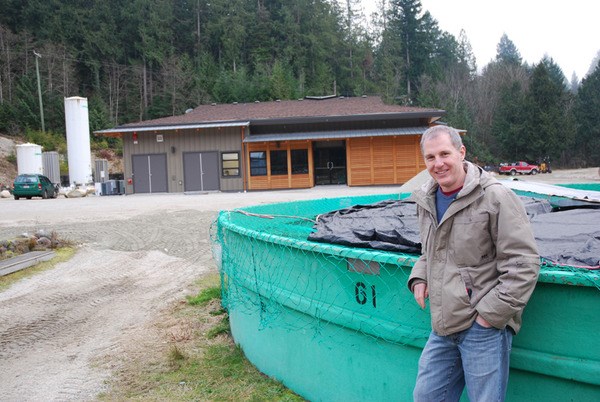Two aquaculture companies on the Coast are now certified organic and producing the only organic sablefish and white sturgeon in the world.
Totem Sea Farm plans to put its first organic sablefish on the market in February, and Target Marine Hatcheries will have organic caviar and sturgeon meat ready for sale this month.
In order to produce organic fish, both companies had to meet standards laid out in the new Canadian Organic Aquaculture Standards manual, put in place in April 2012.
Organic, as it relates to aquaculture, is described as a holistic system designed to optimize the productivity and fitness of the aquatic ecosystem.
Specifically the standards prohibit the use of antibiotics, herbicides and genetically modified organisms and severely restrict the use of agents used to destroy parasites.
The standards also demand more space for fish, noting tanks should be stocked at about half the density used in conventional aquaculture.
Feed is regulated as well to ensure it doesn't contain any growth hormones, genetically modified ingredients, artificial colours or synthetic enhancers.
Target and Totem underwent careful auditing by Global Trust, an international standards auditor, before being awarded their organic status.
Both companies were also involved in the process to bring organic certification to the aquaculture industry in B.C.
It's taken a long time. Really the federal government got on board a few years ago to show an interest in developing a standard for aquaculture, said Target Marine hatchery manager Justin Henry. Governments around the world for enabling trade are requiring national standards so provincial standards or independent private standards are less accepted and by some countries aren't accepted at all.
Henry was on the development committee for the national standard, which took about three years to bring to fruition.
Gus Angus, owner of Totem Sea Farm Inc., was also on that committee pushing for a national standard. He and his wife Dana saw the benefit of organic farming long ago.
Conventional farming on the land or in the sea has a large footprint. Organic farming endeavours to not only reduce these footprints but, where possible, enhance the environment in which we farm, Angus said. By adhering to the Canadian Organic Aquaculture Standard it is our feeling that open net cage aquaculture can be an environmental credit rather than a debit. This is demonstrated at our farm site by the increase in biodiversity in the immediate area of our net pens.
Both companies say they have been raising fish in organic and environmentally sustainable ways for years; however, they could not officially put the organic sticker on products until the certification was granted.
In addition to sturgeon, Target Marine Hatcheries is now also a producer of the only organic fertilized coho eggs in the world.
To find out more, including how to purchase the locally grown organic fish, see Totem's and Target's websites at www.totemseafarm.com and www.northerndivine.com.



